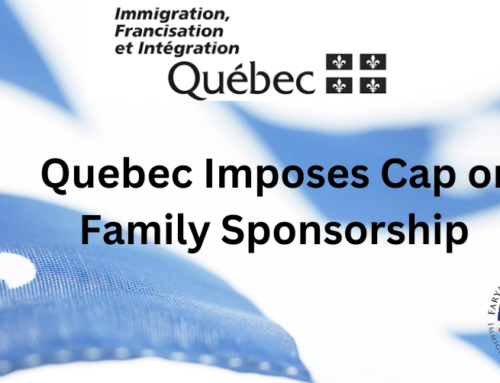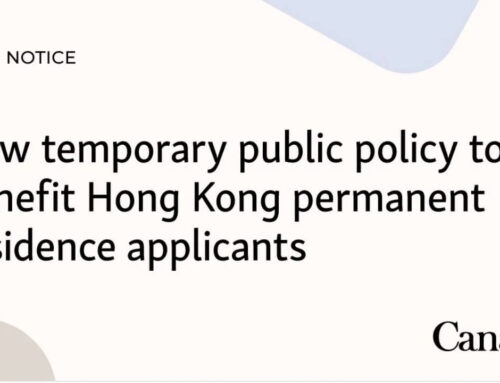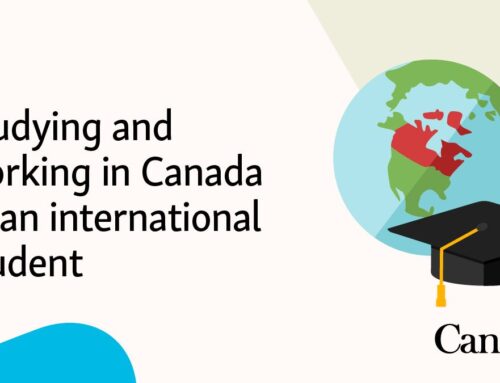As of October 8th, Canada announced that they will be relaxing travel restrictions for extended family members if they are staying longer than 15 days and can meet all the requirements for admissibility.
This comes after significant hardship on families unable to reunite due to travel bans into Canada. Canada recognizes the need to balance the health and safety of Canadians, but at the same time, recognize that families wish to be together. In June, Canada lifted travel restrictions for immediate family members and further relaxed the restrictions after several complaints about the original policy.
There are certain eligibility requirements as well as competition forms and attestations to be permitted to enter Canada.
Who Is an Extended Family Member?
- If your relationship is with a Canadian citizen or permanent resident, you must be
- in an exclusive dating relationship, have been in the relationship for at least 1 year and have spent time in the physical presence of that person at some point during the relationship
- a non-dependent child (adult child)
- a grandchild (dependent child of a non-dependent adult child)
- a sibling, half-sibling, or step-sibling
- a grandparent
What is an Exclusive Dating Relationship?
An exclusive dating relationship means you’re in a romantic relationship with a Canadian citizen or permanent resident, have been in the relationship for at least 1 year, and have spent time in the physical presence of that person at some point during the relationship.
Examples of an exclusive dating relationship include
- fiancé(e)
- committed romantic partners for at least 1 year who lived together but don’t meet the definition of common-law
- boyfriends, girlfriends, or any other couple in an intimate, loving relationship
If you’re related to someone in an exclusive dating relationship with a Canadian citizen or permanent resident, you must be a
- dependent child
- non-dependent child (adult child)
- grandchild (dependent child of a non-dependent adult child)
- If you’re related to the spouse or common-law partner of a Canadian citizen or permanent resident, you must be a
- non-dependent child (adult child)
- grandchild (dependent child of a non-dependent adult child)
- sibling, half-sibling, or step-sibling
- grandparent
Exempt extended family members will also need a signed declaration by the Canadian citizen or permanent resident that confirms your relationship. You will also need written authorization by IRCC.
What to do to unite with your extended family member
With the relaxation in travel restrictions, it is seemingly possible that many families will soon be reunited, despite the pandemic.
Step 1: Your family member fills out an application for authorization and statutory declaration
Your family member who is a Canadian citizen or permanent resident must fill out the application for authorization and statutory declaration form also referred to as the IMM0006.
Step 2: You sign the declaration
Your family member in Canada sends you the application for authorization and statutory declaration that they filled out. You sign the form and send it back to your family member in Canada.
Step 3: Your family member signs the form by solemn declaration
Once you’ve sent the form back to your family member in Canada, they must sign the form by solemn declaration in front of any authorized official, such as a commissioner for oaths, justice of the peace, lawyer, or notary.
Step 4: Get a copy of the completed and signed form
Your family member in Canada must send you a copy of the completed and signed application for authorization and statutory declaration.
Step 5: Request a written authorization to travel
Once you have a copy of the completed and signed application for authorization and statutory declaration use it as evidence of your relationship with your family member and request a written authorization from us.
You need written authorization from IRCC no matter where you’re travelling from.
How you request a written authorization depends on whether or not you already have a valid travel document, such as a Temporary Resident Visa (TRV) or Electronic Travel Authorization (eTA).
You should not book a flight to Canada until you get your written authorization from IRCC.
Step 6: Bring your copy of the application for authorization and statutory declaration, as well as the written authorization with you when you travel.
You must have a copy of the application for authorization and statutory declaration as well as the written authorization with you when you travel. This is mandatory. If not, you won’t be allowed to board your flight or enter Canada.
Once the form is signed by a solemn declaration, you have six months to travel to Canada. If you don’t travel within six months, you’ll need a new statutory declaration.
If you require assistance with information on whether you qualify as an extended family member and the forms you will be required to complete, please contact our office to obtain a consultation with our Lawyer.





